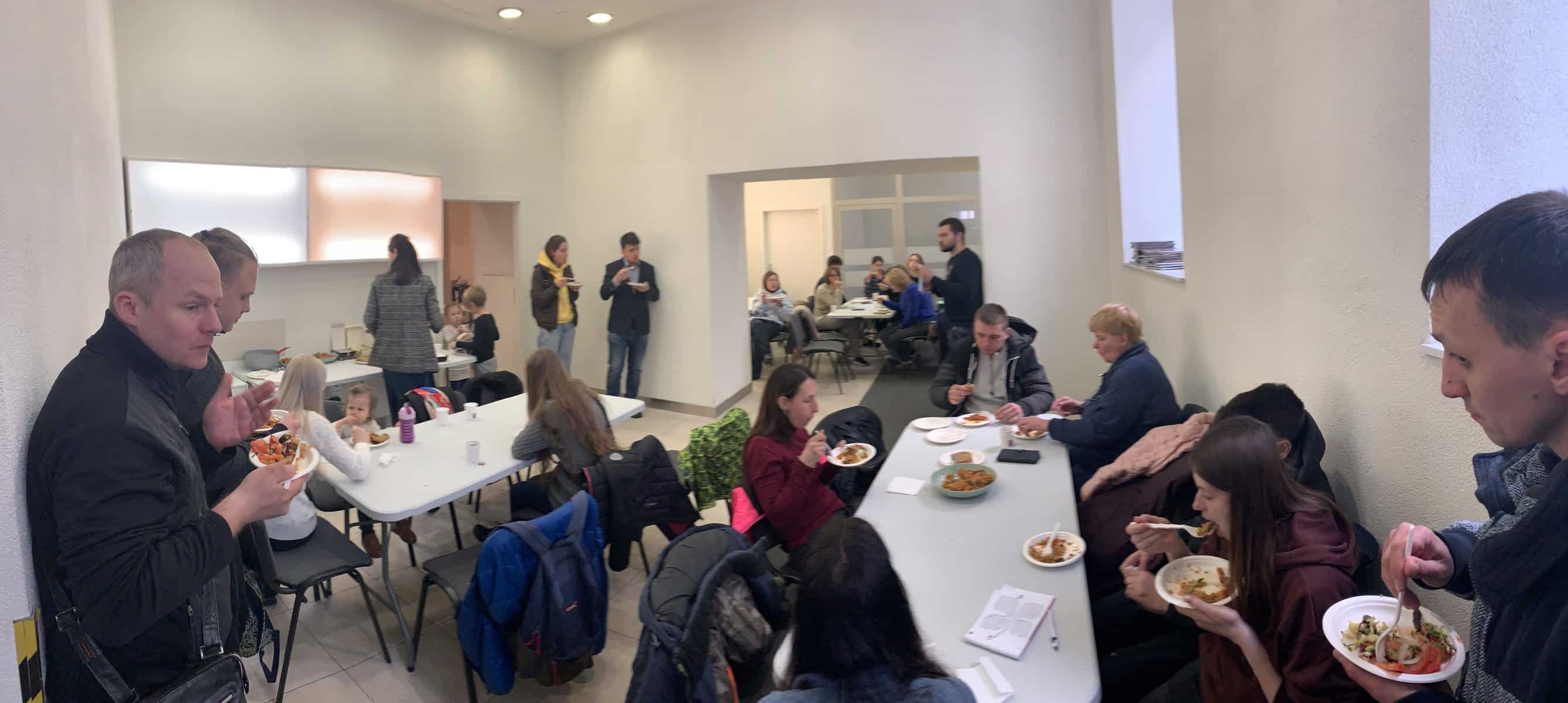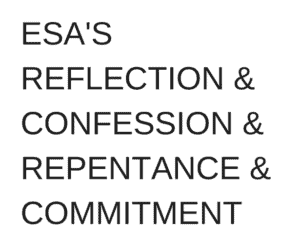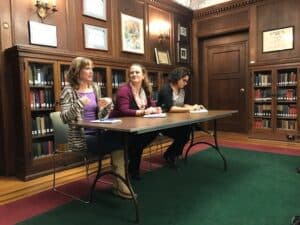 Saško Nezamutdinov, pastor of Christ the Saviour Presbyterian Church in Krakow, Poland, started our Whatsapp conversation that morning with a determined but desperate appeal: “We’re up to our neck in refugees! We need help—can you help?”
Saško Nezamutdinov, pastor of Christ the Saviour Presbyterian Church in Krakow, Poland, started our Whatsapp conversation that morning with a determined but desperate appeal: “We’re up to our neck in refugees! We need help—can you help?”
I was introduced to Saško at a church planting class in New York City in 2015 hosted by an organization that grew out of Redeemer Presbyterian Church in the late ’90s called City to City.
Saško, who is Ukranian-born, became a Christian at a young age and responded to a call to preach the gospel in Poland after he graduated from a Bible college. After the training in New York City ended, he started Christ the Saviour Presbyterian in 2016. They hosted several mission teams from Redeemer, and he has a strong link with a Mission to the World team serving in Lviv.
The relationship between Poland and Ukraine
“Poland and Ukraine have had many highs and lows in the past,” Saško explained, “but our countries have been linked in so many ways, mainly due to proximity, a similar culture and language, and the huge diaspora of Ukrainians who have lived in Poland for decades. But in 1991, after the collapse of the Soviet Union, the relationship became very friendly and has been ever since.”
According to Saško, many Ukrainians already have friends and family living inside the Polish border, so it’s a natural point of entry for the refugees who are fleeing. Poland has more in common with Ukrainians than other border countries such as Hungary and Slovakia, with Krakow as the gateway city. At this point, Krakow is playing host to hundreds of thousands of refugees—some are sheltering in private homes and churches, while other families are using it as a way-station before moving further West, as far away from Ukraine as they can get.
Polish hospitality
The Polish government and its citizens have been mostly welcoming to Ukrainian refugees. In Krakow, people are taking strangers into their homes and letting them stay in Airbnb properties for free. They’re extending small tokens of hospitality, like offering Ukrainians free public parking and public transportation to anyone holding a Ukrainian passport. According to Saško, “Poland is going above and beyond to accept and help these people. And the vast majority of these people are women and children, since the men have been drafted into the army to fight. They are alone and scared. We are also afraid—we know we’re next in line as a Russian target. Yesterday’s Russian missile came within 15 miles of our Polish border. We’re at risk, too, so we greatly empathize with our fellow Ukrainians.” And Krakow is now filled to bursting.
Christ the Saviour Presbyterian has stepped up by helping to house many refugees, and Saško, since he also speaks Ukrainian, will soon be offering services in their language (the church has historically offered services in both English and Polish). “We are helping with short-term needs,” Saško explains, “but are also planning for the long-term. We are helping people with legal advice and basic needs. We’re collecting goods such as food, blankets, and pillows. We’re also planning to start a Ukrainian-speaking Bible study, and we want to help the women out by offering a daycare for their children when they get jobs, which they’ll need to do soon. We intend to help plug the children into our school system.”
Christ the Saviour Presbyterian has now doubled in size due to the refugees. Several congregants in the church are Ukrainian-born, so refugees who come to the church feel an instant kinship and want to attend. Saško has started a fund for the refugees through Loving All Nations, which will immediately send the funds to the church. No overhead will be taken, and all will be earmarked solely for the refugees of Krakow. “We won’t turn anyone away, and we intend to help anyone who comes to our doorstep. Thanks in advance for any support you feel led to give.”
Christina Ray Stanton is founder of the nonprofit Loving All Nations and an award-winning author.


